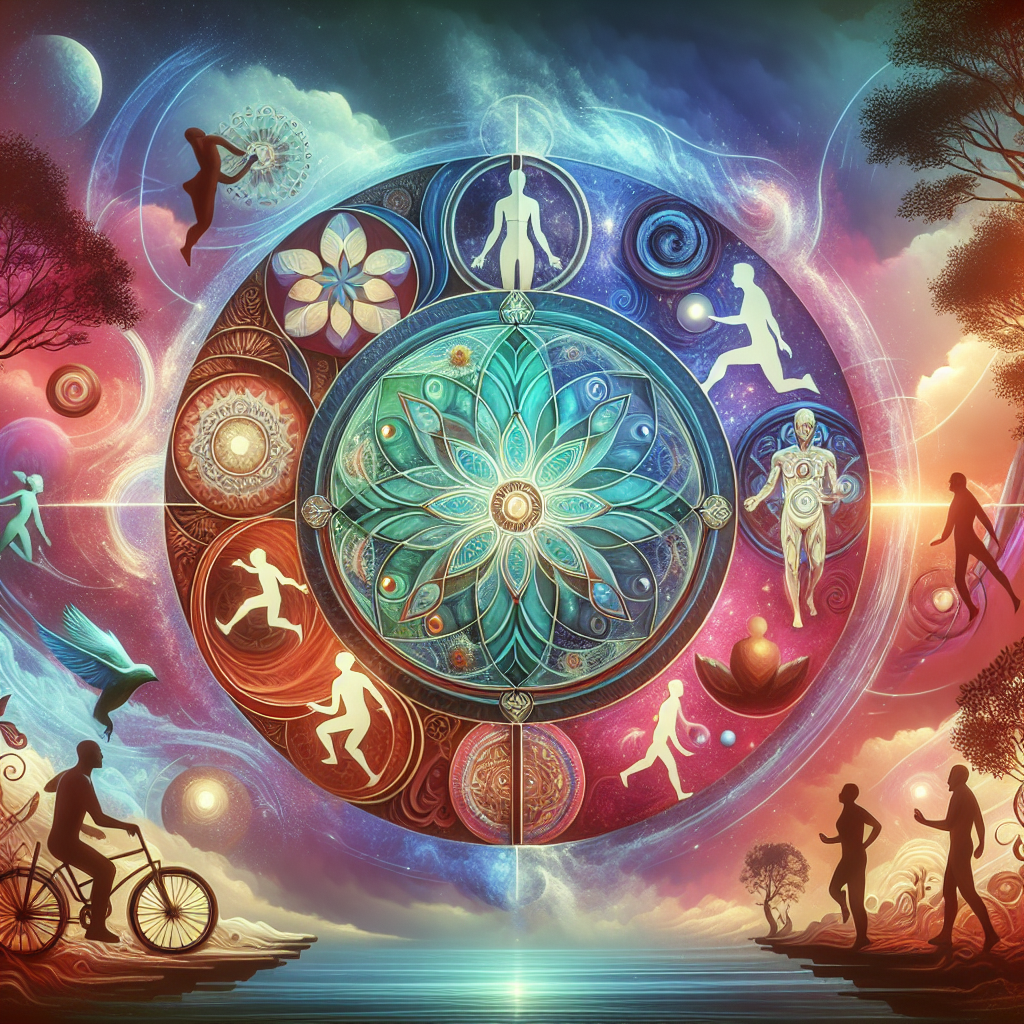Karma is a concept that transcends cultural boundaries and philosophical teachings. It deals with the moral principles of cause and effect, asserting that our actions have consequences that can radically impact our lives. This belief is not limited to just one faith; it’s a universal truth found in many spiritual and philosophical traditions around the world, from Buddhism and Hinduism to various Western ideologies. By understanding the depth of karma, we can gain insight into how our actions influence our destinies.
What is Karma?
The term “karma” derives from the Sanskrit word “karman,” which means “action” or “deed.” At its core, karma encapsulates the idea that every action creates a chain of reactions, similar to the laws of physics—every action has an equal and opposite reaction. However, in the spiritual realm, this is viewed through a moral lens, suggesting that positive actions yield positive outcomes, while negative actions lead to negative consequences.
The Core Principles of Karma
Karma is often divided into different types that all relate back to the principle of causality. Here are the primary components:
- Actions and Intentions: It’s not just the action that matters but also the intention behind it. Positive intentions paired with good actions amplify karmic results.
- The Law of Cause and Effect: This universal principle states that everything we do, think, or say comes back to us in some form.
- Timing: Karma does not always manifest immediately. The results of our actions can sometimes take years, or even lifetimes, to return.
- Collective Karma: Beyond individual actions, groups and communities can also generate collective karmic energy, influencing broader societies.
The Role of Karma in Different Cultures
Karma is an essential doctrine in various religions and philosophies, each interpreting it through distinct lenses. Below are a few cultural insights:
Buddhism
In Buddhist philosophy, karma is a fundamental concept that relates directly to the cycle of Samsara—the cycle of birth, death, and rebirth. Buddhism emphasizes that our actions in this life determine our future existences, suggesting that earning good karma through ethical living can lead to a favorable rebirth.
Hinduism
Similarly, Hinduism elaborates on karma with concepts like dharma (righteous duty) and moksha (liberation). Good deeds aligned with one’s dharma produce positive karma, whereas failure to uphold dharma can result in negative karma, impacting one’s future life experiences.
Western Philosophies
In the Western context, while karma may not be labeled explicitly, its principles resonate in the notion of “what goes around, comes around.” Many Western religions, including Christianity, emphasize moral responsibility and the idea that one’s actions will be judged in some form, aligning with the karmic law of cause and effect.
Karma and Personal Responsibility
Understanding karma encourages individuals to embrace personal responsibility. If every action has consequences, then we hold the power to shape our destinies through our choices.
How to Cultivate Positive Karma
The following practices can help in generating positive karma:
- Mindfulness: Being present and aware of your actions can help you align them with positive intentions.
- Compassion: Acts of kindness towards others contribute to positive karmic results.
- Forgiveness: Letting go of anger and resentment typically fosters positive energies, enhancing one’s karmic account.
- Service: Engaging in selfless acts, such as volunteering, creates positive waves that benefit both the giver and the receiver.
The Relationship Between Karma and Fate
Many people often confuse karma with fate, but they are not synonymous. While karma focuses on individual actions and their outcomes, fate often indicates predetermined destinies. Understanding the interplay between these two concepts serves to illuminate how much control we truly have over our lives.
Choosing Your Path
While certain life circumstances may appear to be fated, our responses to those situations are where our karmic actions come into play. This relationship highlights the importance of choice, resilience, and personal growth.
The Scientific Perspective on Karma
In recent years, some researchers have drawn parallels between the principles of karma and findings in psychology regarding behavior and reputation. The idea that one’s actions can affect one’s social standing is supported by concepts such as social reciprocity, which illustrate how kindness often breeds kindness.
Neuroscience and Karma
Furthermore, neuroscience has begun to explore how altruistic behaviors trigger positive reactions in the brain, ultimately affecting one’s mental and emotional well-being. Engaging in positive actions not only impacts others but also rewires our cognitive patterns towards happiness and fulfillment.
Challenges in Understanding Karma
Despite its universal appeal, there are challenges and misconceptions surrounding karma that can lead to misunderstanding and frustration.
Karma vs. Destiny
As mentioned earlier, karma is often mistaken for destiny. The confusion arises when individuals believe they are victims of bad karma without recognizing their role in shaping it. This mindset can lead to a fatalistic approach to life, negating the active role one plays in their karmic journey.
Misinterpretations of Justice
Another challenge lies in the misinterpretation of karmic justice. The belief that negative actions will immediately be punished can lead to disillusionment, especially when injustice appears to go unaddressed in this lifetime. Understanding that karma transcends time deepens our comprehension and patience regarding karmic retribution.
Karmic Relationships
Many people encounter various karmic relationships throughout their lifetimes. These relations often feel intense or familiar, sometimes characterized by challenges that recur.
Types of Karmic Relationships
- Healing Relationships: These partnerships help both individuals resolve past karma and grow positively.
- Teaching Relationships: Often one-sided and challenging, these relationships serve to teach vital lessons.
- Supportive Relationships: These are built on mutual respect and understanding, fostering positive growth.
Conclusion
In essence, understanding karma provides a roadmap for navigating life’s ethical terrain. It emphasizes the profound connections between our thoughts, actions, and their consequences. Whether engaged in spiritual practices or simply seeking to lead a more fulfilling life, the principles of karma can guide individuals toward making choices that produce positive outcomes for themselves and others.
As you journey through life, remember that your actions shape not only your own destiny but also the collective journey of humanity. By fostering positive actions and intentions, you can not only transform your own life but also create a ripple effect, contributing to a more harmonious world.
FAQs
What is the difference between karma and fate?
Karma is based on the actions we take and the consequences that follow, while fate typically refers to predetermined outcomes that are beyond our control. While karma allows for personal agency, fate implies a more passive acceptance of circumstances.
Can bad karma be changed?
Yes, individuals can transform bad karma into good karma by taking positive actions and making amends. Through genuine effort in rectifying past mistakes and cultivating positive intentions, one can change their karmic energy.
How does one know if they have good or bad karma?
Observing patterns in your life can provide insight into your karmic state. If you experience positive relationships, fulfillment, and overall peace, this may suggest good karma. Conversely, frequent challenges, negative interactions, or recurring difficulties may indicate unresolved karmic issues.
What role does intention play in karma?
Intention is a critical aspect of karma. The motivation behind our actions significantly impacts the karmic results. Positive intentions enhance the potential for good karma, whereas negative or selfish intentions can lead to adverse outcomes.
Is karma instantaneous?
Karma does not always manifest immediately. The effects of our actions might be felt instantly in some cases, while others may take time—weeks, years, or even lifetimes—to reveal themselves. This delay is an essential aspect of the karmic process.
It seems like your message might have been cut off. Could you please provide more details or clarify what you would like assistance with? Whether it’s a specific topic, a writing prompt, or anything else, I’m here to help!, #Karma #Explained #Actions #Shape #Destiny, #Karma #Explained #Actions #Shape #Destiny, 1735610308, karma-explained-how-your-actions-shape-your-destiny





